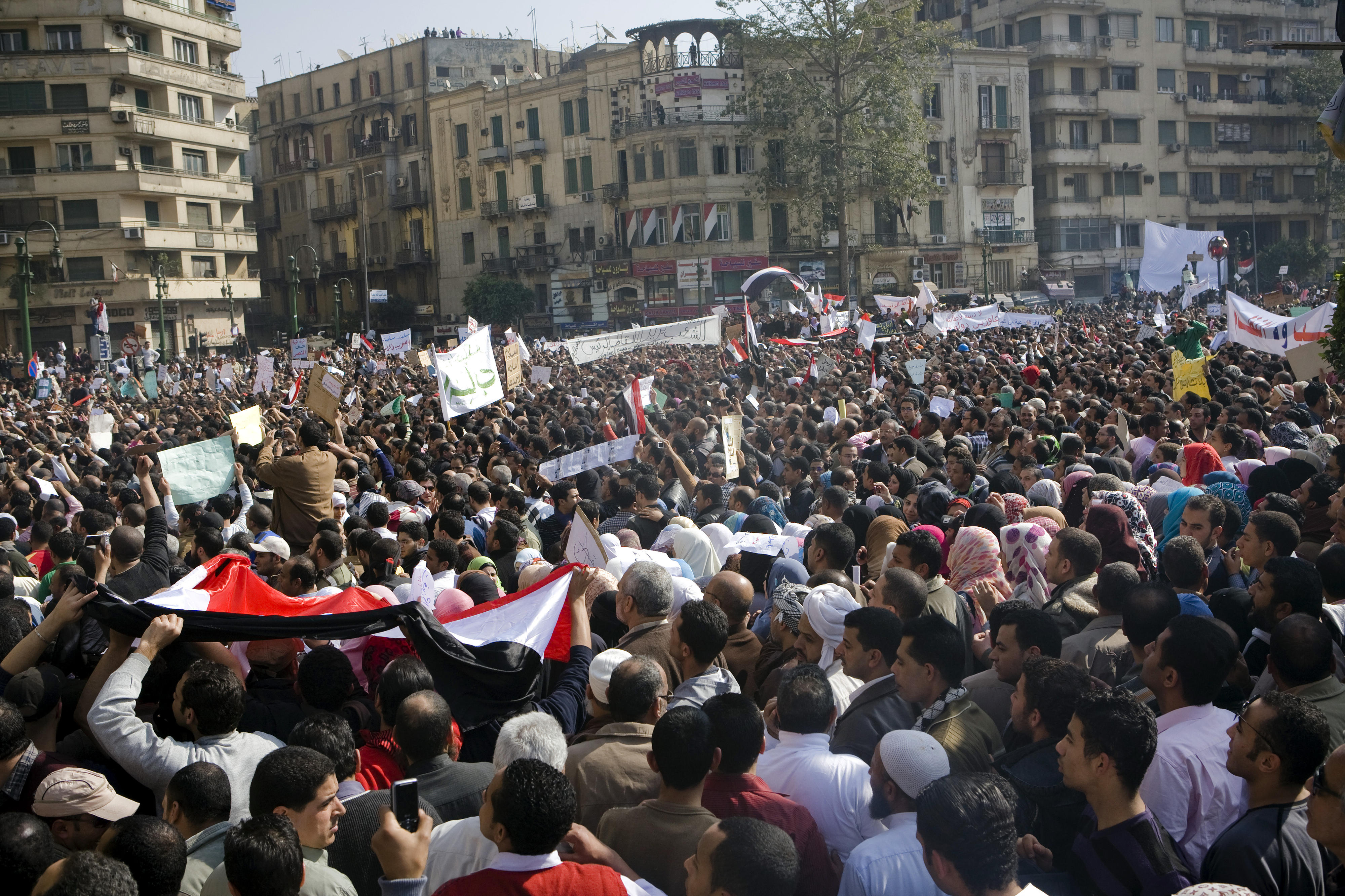Demonstration on Tahrir Square in the centre of Cairo on 1 February 2011
Copyright© Hossam el-Hamalawy, via flickr, CC BY-SA 2.0
Political situation Changes in the separation of powers and curbs on basic rights
In 2014, Abdel Fattah al-Sisi was elected Egypt's president; he was confirmed in office in 2018 and 2023. In April 2019, amendments to the constitution entered into force that included substantial encroachments into the separation of powers, provisions that further expanded the military’s scope to control aspects of civilian life and an extension of presidential terms (from four to six years) – allowing President al-Sisi to continue ruling the country until 2030.
Background
After the revolution which led to Hosni Mubarak stepping down as president, it was mainly Islamist parties that emerged strong from the parliamentary elections in 2011. The Freedom and Justice Party, which was dominated by the Muslim Brotherhood, an influential Islamist movement, won most of the seats in Parliament. Party chairman Mohamed Morsi was elected President in 2012. After days of mass protests against his government, he was removed from office by the military in summer 2013. The Muslim Brotherhood and the Freedom and Justice Party were banned. Many of their members were arrested and sentenced.
The military set up a transitional government, which presented a “roadmap towards democracy”, and in early 2014 a new constitution was approved by referendum. Since June 2014, Abdel Fattah al-Sisi, former Commander-in-Chief of the Egyptian armed forces, has held the office of President.
Human rights
The rights to freedom of opinion, freedom of assembly, freedom of association and press freedom enshrined in the constitution have been increasingly restricted since 2014. Public criticism is suppressed; anyone expressing critical views – including on social media – is likely to face criminal prosecution.
Many civil society organisations and individuals are under investigation, their accounts have been blocked, they are forbidden to travel abroad and face intimidation. A law was passed in 2019 that regulates the activities of non-governmental organisations in Egypt. It requires the organisations to register. Non-compliant organisations face being dissolved.
Human rights organisations are reporting arbitrary arrests, torture and forced disappearances, as well as inhumane conditions in the overcrowded prisons. In contrast to international trends, Egypt often imposes and executes death penalties.
Corruption
Corruption is widespread in Egypt and fuels nepotism and clientelism. Corruption affects many aspects of people’s daily lives, for instance when they want to use the services provided by public authorities or when they need medical treatment. On the Corruption Perceptions Index (External link) compiled by the non-governmental organisation Transparency International, Egypt ranked 130th out of the 180 countries evaluated in 2024.
As at: 18/07/2025
